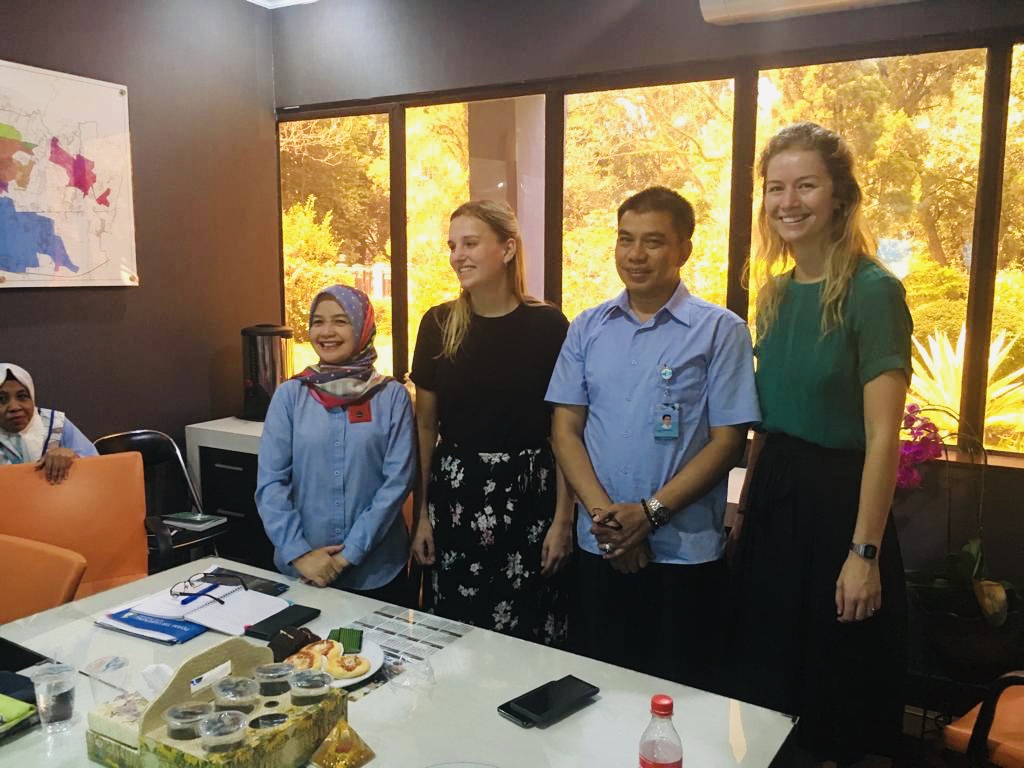Improvement of the chlorination process of PDAM Tirtawening, Bandung, Indonesia
Due to total different water quality standards and disinfection methods over the world, we wanted to go abroad for our Bachelor Thesis to see and learn how the disinfection of drinking water is managed. Several projects came by but we were immediately interested in the project about the improvement of the chlorination process of PDAM Tirtawening, the drinking water treatment plant. This plant supplies drinking water to approximately one fourth of the population of Bandung in Indonesia.
The main purpose of our project was to improve the disinfection process by applying the optimal chlorine dosage. The chlorine is dosed twice during the whole treatment process, namely right after the inflow, the pre-chlorination, and after filtration, the post-chlorination. To calculate this optimal dosage, several measurements were carried out in the laboratory of the treatment plant, using equipment of the Technical University of Bandung.
Currently a lot of algae growth and E.coli bacteria are present in the treated water. This causes a threat to human health. A lot of the inhabitants of Bandung cannot afford bottled water so they drink the (treated) tap water. Disinfection of the water will remove the harmful components in the water. That is why we wanted to improve the chlorination process and contribute to better health conditions.
Due to tap water content measurements throughout the city, we calculated that the current chlorine dosage is too low. Therefore we carried out several jar tests to determine the breakpoint of chlorination. Using this knowledge we computed the required chlorine dosage for sufficient disinfection. It was remarkable that the current dosage was 10 times lower than our measured required dosage.
Bandung was a great experience. We learned a lot about the culture, to live abroad, the disinfection process and a different way of sanitary engineering. Sometimes it was hard to communicate with the staff of the treatment plant to accomplish our goals even though they were always willing to help us. We are very grateful that it was possible for us to go abroad and experience this wonderful adventure.
Sanna Bakels and Silvy Rijsdijk
